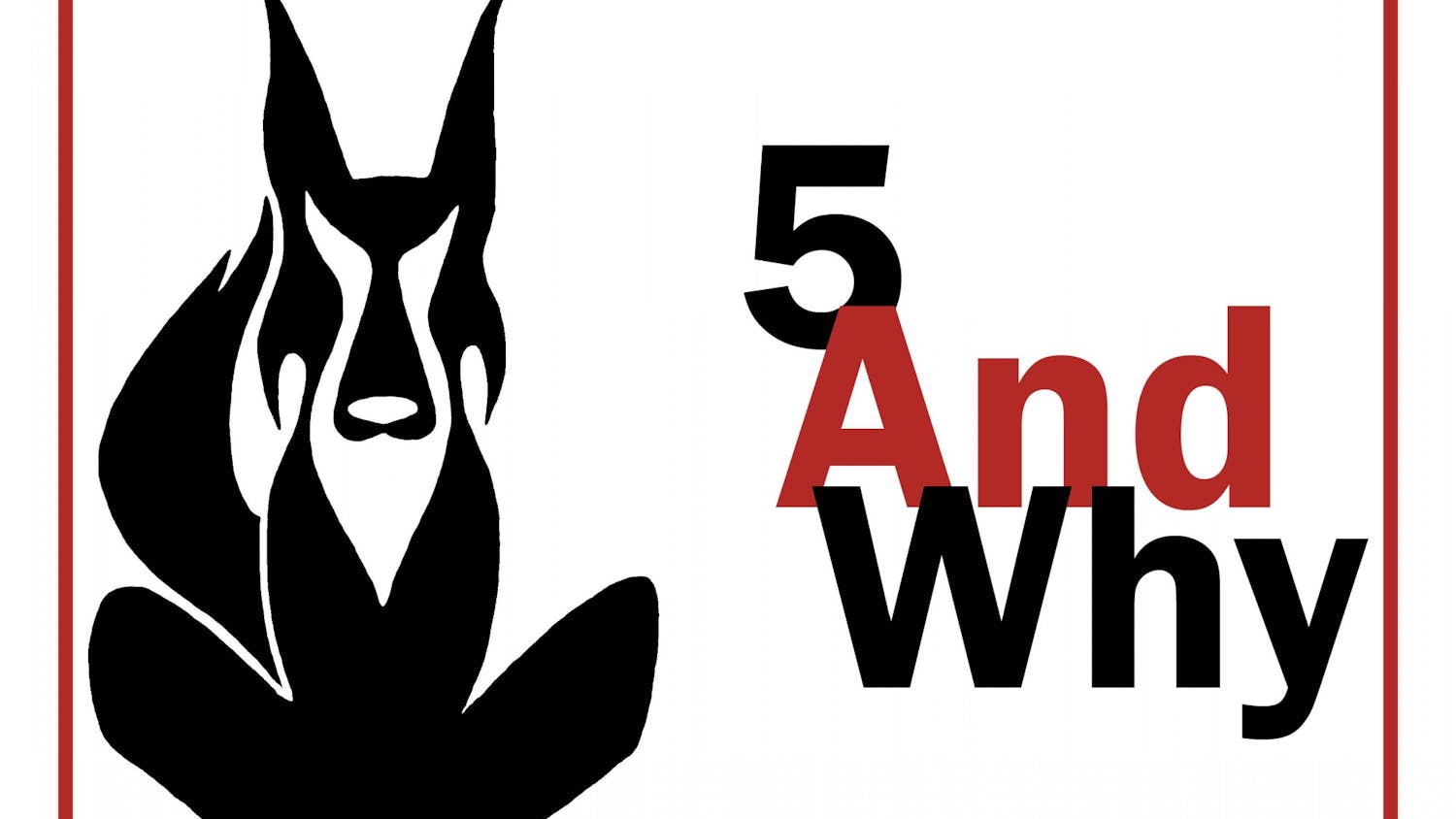I heard a lot of scathing comments from fans Sunday night regarding Mohamed Ibrahim, the center referee for Sunday night’s NCAA men’s soccer tournament second round match-up between 10th seed UNM and unseeded Duke.
These comments were in reference to Ibrahim’s lack of calling an obvious penalty toward the end of regulation time. I say that it is not that cut and dry, folks. Soccer does not revolve around a simple, make-the-call or don’t-make-the-call perspective. The center takes on a much more profound and calculated responsibility when suiting up in the hideous referee’s digs and strapping on the ubiquitous and omni-powerful whistle.
It was an incredible match — one that was won by Fishbein’s men, the Lobo fans and a stroke of good fortune. Just as a point of reference, the Lobo men’s soccer team is on a 14-game winning streak (the official stats say different due to a “tie” in the MPSF Tournament championship game, but the game was decided by penalties, so the Lobos actually won that match).
There are questionable refs and questionable calls in every single game around the world, every single day. The one thing that most people fail to recognize is that refs are human just as the rest of us. Alexander Pope said it best (and I’m sure you’ve heard it many a time, but how apt in this situation): “To err is human; to forgive, divine.” I will play devil’s advocate in this instance and defend the ref — there is a considerable amount of pressure placed solely on the shoulders of the center ref.
In a match-up as pivotal as the one we saw Sunday night, with a home crowd as rowdy as that, the pressure to get the calls right will be increased exponentially. The best job a ref can do is to allow the game to proceed uninfluenced by the officials, keeping in mind the safety of both teams, of course. It is ultimately a ref’s job to remain unseen in a match, that is, to not shift the momentum of the game due to an arrogant or hasty call.
The ref may be the center official, but he is not the center of attention.
Issuing a red card, regardless of the position on the field in which it is issued (the missed call was in Duke’s penalty box), is a gutsy call to make. Leaving a team down a man is a hard decision to come by. The yellow card issued to Chris Tweed-Kent of Duke was the second of only two yellow cards issued on the night (Tweed-Kent received the only red card of the entire game). John Kerr, Duke men’s soccer head coach, took a huge gamble leaving Tweed-Kent on the field after the first yellow. With four subs on the bench it shouldn’t have been that hard to fill the void. Tweed-Kent asked for it, and Duke asked for it.
As for the missed call on the penalty (I only saw one toward the end of the second half), you have to look at the situation. Duke was down a man, the Lobos had already tied the game, the missed foul call was in the 87th-88th minute and with the Lobos’ spot kickers having plenty of practice this season, it surely would have decided the game (not to mention there was no dangerous/potentially health-damaging play on the foul that was committed. Everyone came away unscathed).
Instead of calling the penalty and finalizing the game on his own accord, the ref continued play and the two teams went into overtime. The game was then decided by the resilience of the Lobos’ offense and not by a hurried or haughty call. Well done, Ibrahim, well done I say. Thank you for just letting the men play.
Get content from The Daily Lobo delivered to your inbox





